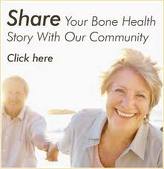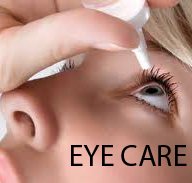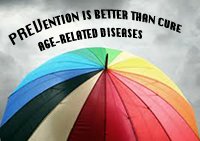|
Vitamin D Deficiency and OverdoseVitamin D DeficiencyCould Vitamin D be the miracle supplement? Brigham and Womens Hospital research indicates that Vitamin D may help defeat asthma in children, hip fractures in adults and maybe a whole lot more. Vitamin D Deficiency can have dramatic consequences on your health. Nutrient deficiencies are usually the result of dietary inadequacy, impaired absorption and use, increased requirement, or increased excretion. A vitamin D deficiency can occur when usual intake is lower than recommended levels over time, exposure to sunlight is limited, the kidneys cannot convert vitamin D to its active form, or absorption of vitamin D from the digestive tract is inadequate. Vitamin D-deficient diets are associated with milk allergy, lactose intolerance, and strict vegetarianism. Rickets and osteomalacia are the classical Vitamin D deficiency diseases. In adults, vitamin D deficiency can lead to osteomalacia, resulting in weak muscles and bones. Symptoms of bone pain and muscle weakness can indicate inadequate vitamin D levels, but such symptoms can be subtle and go undetected in the initial stages. Groups at Risk of Vitamin D Inadequacy
Osteoporosis Although rickets and osteomalacia (see notes below) are extreme examples of the effects of vitamin D deficiency, osteoporosis is an example of a long-term effect of calcium and vitamin D insufficiency. Adequate storage levels of vitamin D maintain bone strength and might help prevent osteoporosis in older adults, non-ambulatory individuals who have difficulty exercising, postmenopausal women, and individuals on chronic steroid therapy. During menopause, the balance between these processes changes, resulting in more bone being reabsorbed than rebuilt. Hormone therapy with estrogen and progesterone might be able to delay the onset of osteoporosis. The decreased risk of fractures occurred primarily in elderly women aged 85 years, on average, and living in a nursing home. Women should consult their healthcare providers about their needs for vitamin D (and calcium) as part of an overall plan to prevent or treat osteoporosis. Vitamin D OverdoseHealth Risks from Excessive Vitamin D Excessive sun exposure does not result in vitamin D toxicity because the sustained heat on the skin is thought to photodegrade previtamin D3 and vitamin D3 as it is formed High intakes of dietary vitamin D are very unlikely to result in toxicity unless large amounts of cod liver oil are consumed; toxicity is more likely to occur from high intakes of supplements. Interactions with Medications Certain Supplements cannot cause harm as quantities in excess of need is excreted from the body. Other supplements, including Vitamin D, should not be taken without the advise of your medical professional as they stay in the body and can cause symptoms. (This information was compiled from the Dietary Supplement Fact Sheet on Vitamin D provided by the Office of Dietary Supplements of the National Institutes of Health (USA) - website: http://ods.od.nih.gov )
Forever Looking Younger
Notes: Osteomalacia is softening of the bones due not enough available phosphorus and calcium and to a lack of vitamin D or a problem with the body's ability to break down and use this vitamin. Symptoms: Bone fractures that happen with very little injury; weak muscles; bone pain, especially in the hip joints. (Sources Wikpedia and US National Library of Medicine). TOP of Vitamin D Deficiency
|
Pages on Osteoporosis
News About Osteoporosis
Osteoporosis Quotes
“Twenty-five years ago, the world's leading experts in cardiovascular diseases warned of an impending epidemic of heart disease in developing countries. This warning was largely ignored and we are now seeing a dramatic increase in prevalence of cardiovascular diseases in the developing world. We must not allow the same thing to happen for osteoporosis. We must act now.”
Gro Harlem Brundtland, former director general, World Health Organization,
“Although we have effective treatments for osteoporosis, each year millions of our grandmothers are crippled and disfigured because they don't have easy and sufficient access to diagnosis and medication.”
Her Majesty Queen Rania of Joran
“As patron of Osteoporosis Canada for many years, I am pleased that we have successfully changed the image of osteoporosis as a disease of elderly women, a group who historically have had neither economic nor political clout –to a disease that can strike us all whether we are men or women, young or old. ”Maureen McTeer, medical law specialist, human rights advocate, author, patron of Osteoporosis Canada.
Other Sections on Age-well.org










